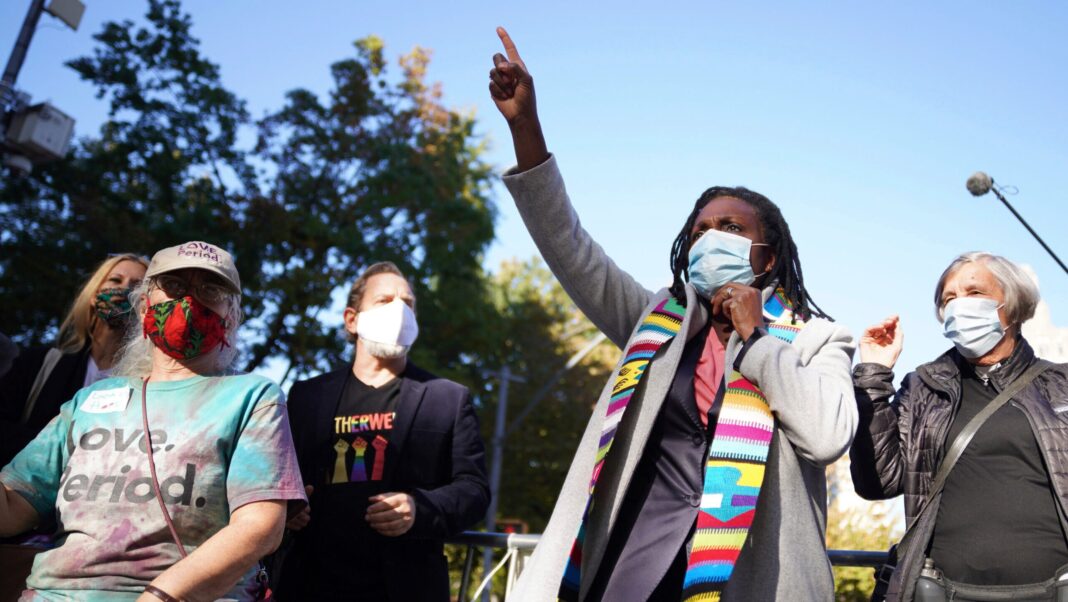The Complex Legacy of Charlie Kirk: A Divided Response
The aftermath of Charlie Kirk’s tragic death has ignited a profound debate across America, particularly within religious communities. His memorialization by conservatives and white evangelicals, who frame him as a martyr with a strong Christian faith, starkly contrasts with the reactions of many Black clergy. They confront the heroic narrative, questioning how one’s death can overshadow a life marked by controversial, and often disparaging, rhetoric regarding people of color.
The Narrative of Martyrdom
Many conservatives have taken to social media and public forums to celebrate Kirk as a principled hero, emphasizing his commitment to conservative values and his faith. Tens of thousands filled a stadium in Arizona for a memorial attended by prominent figures including former President Donald Trump and Vice President JD Vance. This event showcased Kirk’s significant influence within the conservative movement—a blend of a memorial and a political rally that highlighted a growing intertwining of Christian symbolism with right-wing ideologies.
Vance referred to Kirk as a martyr for the Christian faith, emphasizing his “unfettered expression of ideas” and ultraconservative values. This portrayal, however, has not been universally accepted, particularly among Black pastors who vigorously challenge the oversimplification of Kirk’s legacy.
A Different Interpretation: Black Clergy Speak Out
From their pulpits, Black pastors have voiced skepticism over the glorification of Kirk. Rev. Howard-John Wesley pointedly remarked, “How you die does not redeem how you lived,” suggesting that Kirk’s life, filled with divisive and racist rhetoric, complicates any narrative of martyrdom. This sentiment was echoed in many churches across the nation, where sermons condemned Kirk’s words and actions, labeling them as fundamentally opposing the teachings of Jesus Christ.
Rev. Jacqui Lewis articulated a historical connection, asserting that the narrative of Kirk being a martyr resembles the long history of using Christianity to justify acts of oppression. She stated, “It’s white nationalism wrapped in talk of Jesus,” reflecting a deep concern among Black pastors about the misuse of faith to support exclusionary and hateful ideologies.
Racial Divides in Responses
The reactions to Kirk’s death have illuminated a significant racial divide within American Christianity. While many conservative white Christians celebrate Kirk’s legacy, Black churches are holding firm to their tradition of speaking out against racism and injustice. Rev. F. Bruce Williams notably rejected the martyrdom claim while acknowledging the tragedy of Kirk’s violent death, emphasizing the need for critical awareness of the ideologies that shaped his life.
This split-screen moment in America plays out vividly, evidenced by the contrasting congregational responses across religious denominations, with Black pastors standing firm against the glorification of a man whose statements they argue were filled with hate and division.
Comparing Kirk to Historical Figures: A Point of Contention
Many within the Black church community are vehemently opposing comparisons made between Kirk and civil rights icon Martin Luther King Jr. Rev. Jamal Bryant and Rev. Freddy Haynes III directly challenged these allusions, highlighting the lack of moral and ethical alignment. They argue that while both men lost their lives violently, their legacies are fundamentally different, with Kirk’s framed by a proclivity for harmful rhetoric.
This resistance to glorifying Kirk aligns with a broader movement among Black clergy to reclaim their voices within the faith community, asserting the need to confront and critique doctrines that foster racial animosity and division.
The Complexity of Faith and Politics
Interestingly, not all pastors reject Kirk’s legacy outright. Some conservative Black leaders, like Patrick L. Wooden Sr., view the promotion of traditional Christian values as crucial, resonating with Kirk’s stance on various social issues. Wooden’s perspective illustrates a nuanced understanding among some Black evangelicals who may find themselves aligned with Kirk’s views on conservatism, despite the controversial rhetoric surrounding his public persona.
This complexity speaks to the growing schisms within religious communities, where differing interpretations of faith and politics coalesce. For certain conservatives, Kirk symbolizes a valiant defense of their beliefs, while for others, his life is a cautionary tale steeped in division.
Conclusion
The death of Charlie Kirk and the subsequent reactions expose deep fractures within American society, particularly around race and religion. As discussions continue to unfold, the challenge remains for communities of faith to navigate the complexities of their narratives and values in a rapidly changing socio-political landscape. Black pastors are finding their voices resonating deeply in this context, advocating for a faith community that stands firmly against racism and division, echoing the teachings of their faith in the face of a polarized world.



